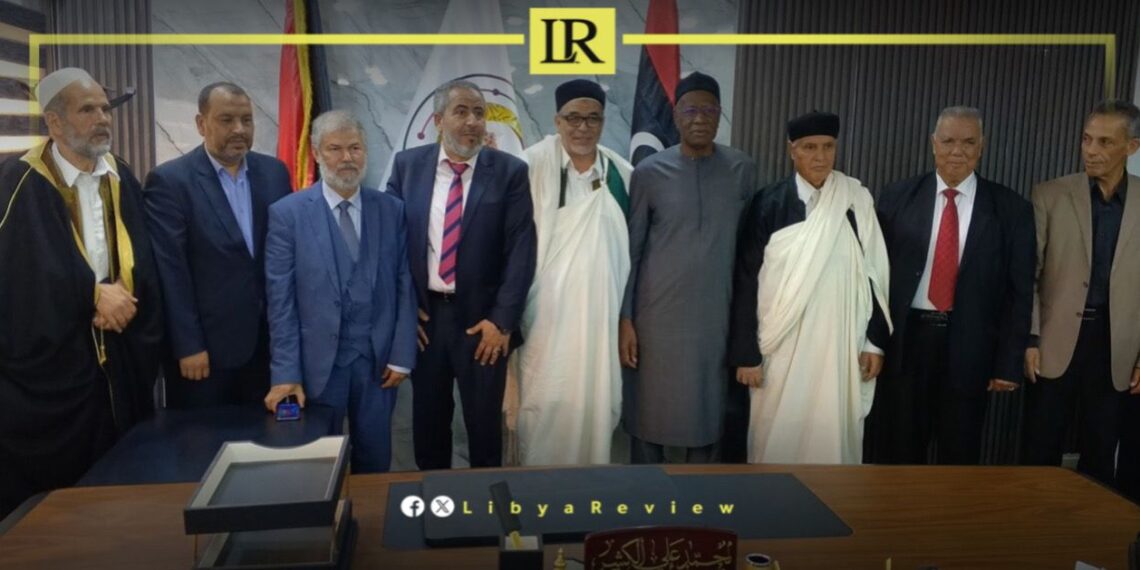Abdoulaye Bathily, the Head of the United Nations Support Mission in Libya, made a pivotal visit to the municipality of Tarhuna on Thursday. This came in a significant move underscoring the United Nations’ continued commitment to fostering peace and stability in Libya.
Welcomed by Mayor Mohammed Elkisher, members of the municipal council, and local elders and dignitaries, Bathily’s trip aimed to gain insight into the town’s needs and aspirations amidst the ongoing political landscape in Libya.
According to Tarhuna’s Media Office, Bathily’s visit focused on understanding the critical needs and ambitions of the municipality against the backdrop of Libya’s current situation, striving to find solutions and ensure a pathway to stability.
Highlighting the urgency of constitutional referendums, Bathily emphasised that adopting the constitution as soon as possible represents the sole resolution for the nation to overcome its political challenges. “The referendum on the constitution is imperative and must be expedited, as it is the key to resolving the country’s political issues,” Bathily stated during discussions.
The visit is part of a broader UN initiative to engage with Libyan communities directly, understand their concerns, and work collaboratively towards sustainable peace and governance solutions. It reflects the UN’s proactive approach in facilitating dialogue and consensus-building among Libya’s diverse political and social factions.
As Libya continues to navigate through its complex political transition, the international community watches closely, hoping that efforts like Bathily’s will contribute significantly to the nation’s journey toward peace and democracy.
Libya has been in chaos since a NATO-backed uprising toppled longtime leader Muammar Gaddafi in 2011. The county has for years been split between rival administrations.
Libya’s economy, heavily reliant on oil, has suffered due to the ongoing conflict. The instability has led to fluctuations in oil production and prices, impacting the global oil market and Libya’s economy.
The conflict has led to a significant humanitarian crisis in Libya, with thousands of people killed, and many more displaced. Migrants and refugees using Libya as a transit point to Europe have also faced dire conditions.


